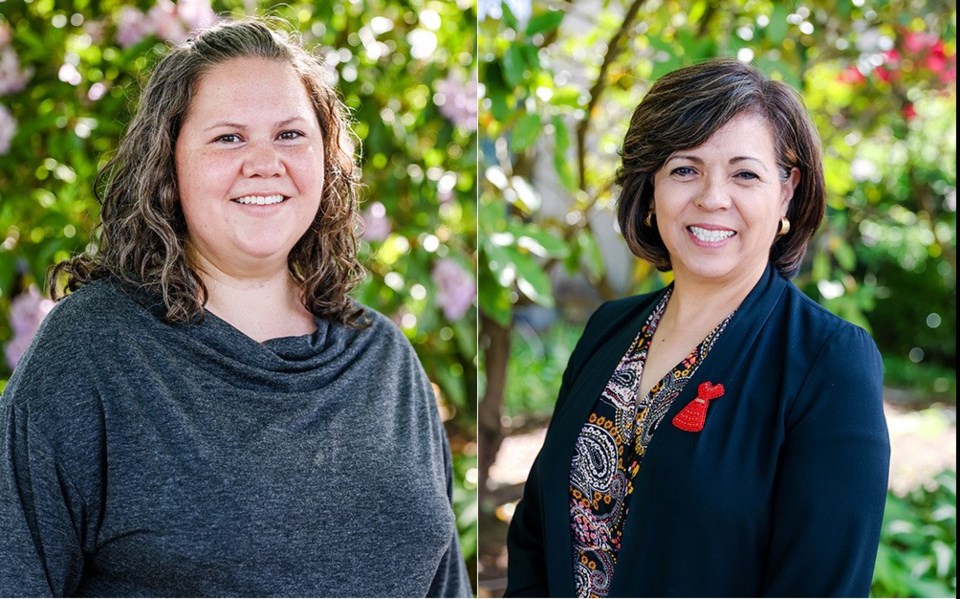Vancouver Coastal Health is changing the way it provides health care to Indigenous women and families, by launching a new Indigenous women’s team that will focus on providing culturally safe care, and ultimately, better health outcomes.
Announced earlier this week, the Indigenous Women and Family Health team consists of an Indigenous perinatal substance use strategic lead, an Indigenous gender and sexual health leader, an Indigenous midwifery lead and two Indigenous doulas.
In a statement, the health authority wrote, “Together, they work across the health authority to ensure Indigenous knowledge and expertise is embedded in all Indigenous women's and family health-related matters, including gender equity and inclusivity, reproductive justice, perinatal health, infant and child health and anti-violence and anti-racism in health care.”
Led by Director Miranda Kelly and Vice-president of Indigenous Health Leslie Bonshor, the program will be guided by the Matriarchs and Knowledge Keepers Advisory Council – a group of Indigenous Elders, health-care clinicians, and Aboriginal Health team members – who draw on the knowledge from their mothers, grandmothers and ancestors to provide guidance and strategic advice.
Bonshor said the program is the culmination of years of engagement with the Indigenous community, meeting with them “around the kitchen table” to hear what’s important to them, and to now provide a prominent place within the broader health system.
Recounting a conversation she had with Kelly, Bonshor said “We need to help demonstrate that we're not only the users of these programs and services, [but] that we can also be on the other side, where we're actually the directors, leaders, thought leaders, and the providers of strategic leadership.
“We need to demonstrate that we are well, that Indigenous women are well, and we're doing well. And we can lead, and we can guide a lot of this work from a place of wellness,” she said.
There are many organizations in the area that are doing fantastic work with Indigenous women, Bonshor said, but the newly announced program is looking to “hard-wire” it into the structures and systems of health care.
“For far too long we've read the devastating data around Indigenous women and how they're affected by all the crises that happen. We also know that on the flip side, women are the strength of our communities, our matriarchs that carry all of the traditional knowledge and cultural practice,” she said.
Both Kelly and Bonshor grew up watching their Aunties and Grandmothers lead their families and communities.
“We're hanging on to the fact that in order to reset and reconcile, we need to go back to our old ways. And the old ways were led by our Aunties and Grandmothers,” she said.
Bonshor noted that while last year’s In Plain Sight report by Aki-Kwe (Dr. Mary Ellen Turpel-Lafond) found widespread racism against Indigenous peoples in B.C.’s health-care system, it has also awoken non-Indigenous people working within it.
“[What] In Plain Sight has done, that no other report prior to it has been able to do, is put some truth telling to the complaints and the stories that we've heard about.
“In Plain Sight coupled with the unearthing of the children, starting with Kamloops Indian Residential School, has really woken up all of our non-Indigenous allies, peers, and colleagues inside these health systems. And so there's this real tsunami effect,” she said.
Kelly added that the report has meant more resources have become available, lifting the weight of responsibility from Elders.
“We have incredible Elders that are involved in guiding us at each step of the way in this work. I know that our Elders have been doing this work for so long, for entire lifetimes,” she said. “One thing that I am really thankful for about In Plain Sight is that it really has brought more support, more resources, and more attention to this work. And it's given our Elders a chance to slow down and have folks like Leslie and myself, and the rest of our team, take up more pieces of work and allow our Elders to rest.”
The focus on perinatal health comes from a place of personal passion while also being responsive to current opportunities from the provincial government, Kelly said, adding the department has always intended to take a “lifespan approach” to Indigenous women’s health.
Kelly noted the perinatal time can be crucial in determining long-term relationships and outcomes with the health-care system.
“For many Indigenous women, the perinatal period is actually one of the first times that they're really interacting with the healthcare system, receiving primary care, and perhaps their first time even leaving their community to receive care and to go to the hospital to birth their baby,” Kelly said.
While not client-focused themselves, the team will be working with VCH’s healthcare partners to implement Indigenous ways of knowing into clinician's practice.
However, team members are practising clinicians outside of their roles within the new team and will work concurrently with VCH and their private practices.
“I really value being able to have health-care providers join our team,” Kelly said. “We're certainly not looking to take them out of community and the incredible work that they're doing with their families directly, but we do really want to elevate their voices within the structures that we're creating, make sure that their voices are heard amongst their peers, and have an opportunity to influence decision making.”
Charlie Carey is the North Shore News’ Indigenous and civic affairs reporter. This reporting beat is made possible by the Local Journalism Initiative.



